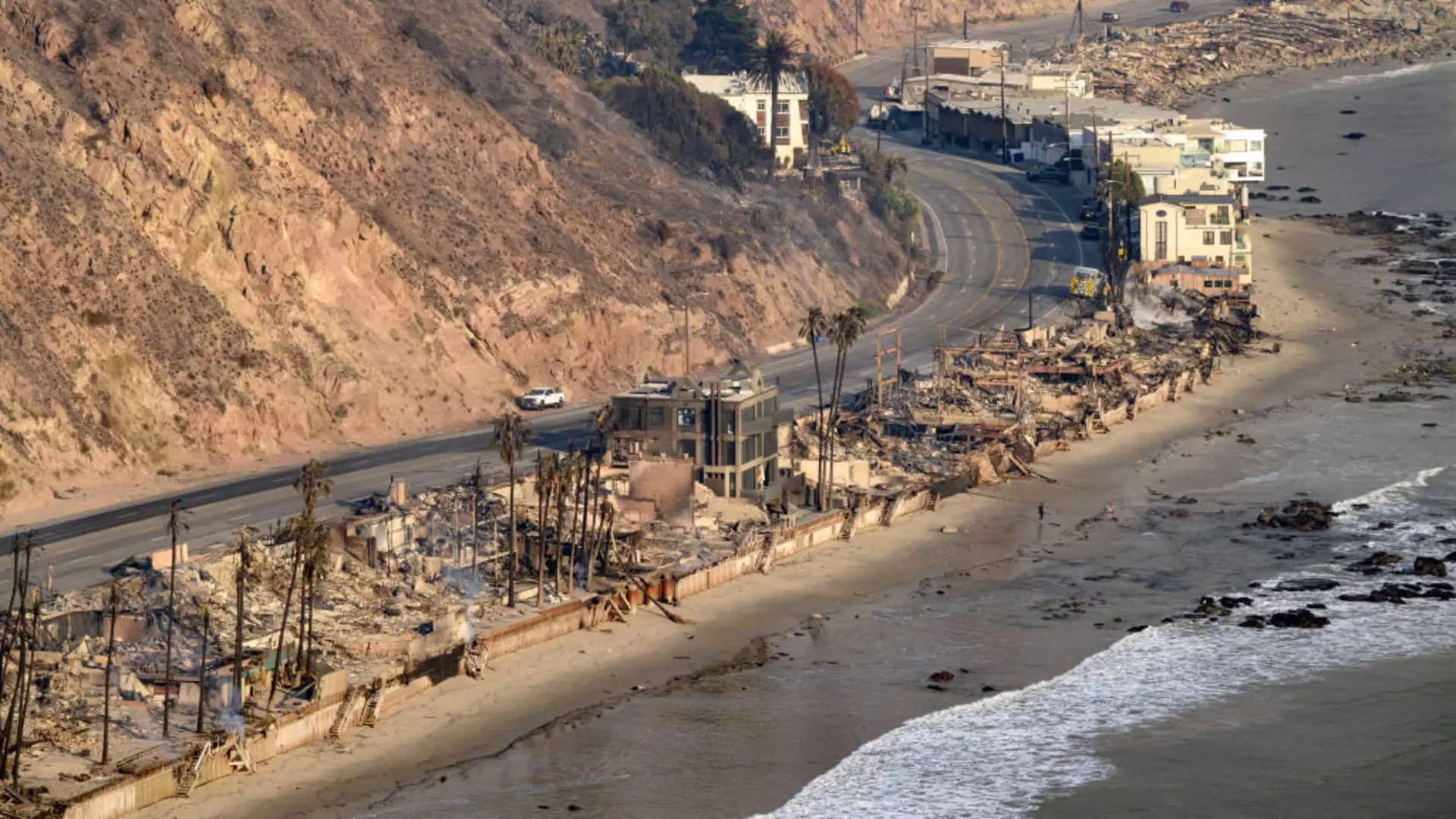Los Angeles, a bustling metropolis known for its entertainment industry and diverse population, is currently facing significant challenges due to the ongoing wildfires that have devastated large portions of the city and surrounding areas. With over 10,000 homes and structures reported damaged, the impact of these wildfires extends beyond immediate physical destruction to various sectors, including air travel. The wildfires have sparked widespread power outages and have caused severe water shortages, leading city officials to issue boil-water advisories to residents in affected areas such as Pacific Palisades.
Despite these distressing circumstances, local airports, including Los Angeles International Airport (LAX), John Wayne Airport, Ontario International Airport, and Hollywood Burbank Airport, have continued to operate normally. According to the flight-tracking platform FlightAware, operations at these airports remained largely unimpeded as of recent updates. This highlights a crucial aspect of modern aviation: the ability of airlines and airports to adapt to environmental challenges while maintaining a level of service for travelers.
In light of the wildfires and their consequent challenges, several airlines, including American Airlines, United Airlines, Southwest Airlines, and JetBlue Airways, have implemented travel waivers. This policy allows travelers booked to Los Angeles to make changes to their travel plans without incurring additional fees. American Airlines, for example, announced that customers whose flights are booked to or from specific airports can rebook their flights at no extra charge, even allowing changes up to January 20. Similarly, Southwest has advised passengers of their flexibility to rebook within 14 days, also permitting changes to flights to alternative California destinations such as Palm Springs, Santa Barbara, and San Diego.
Such accommodations reflect not only corporate responsibility but also strategic positioning within a highly competitive airline market. Customers affected by these natural disasters appreciate flexibility, potentially earning airlines loyalty long after the flames have died down. Additionally, these waivers underscore how airlines are counting on returning demand as recovery efforts begin.
The wildfires have incited a noticeable decline in flight sales to Los Angeles, one of the major hubs for both business and leisure travel. Glen Hauenstein, President of Delta Air Lines, articulated during an earnings call that while sales have dropped, the impact has not led to a significant increase in cancellations. Instead, it appears that consumers are simply delaying or reconsidering their travel plans. Hauenstein acknowledged that after such devastating events, an uptick in travel demand can often follow, driven by reconstruction and the inherent need for mobility in the face of equity recovery.
Airlines face a unique duality in these situations: immediate drops in demand coupled with long-term opportunities that naturally arise after disasters. Historically, travel tends to rebound as communities strive to restore normalcy and rebuild. This insight offers a glimmer of hope both for airlines and local economies, suggesting that even amidst crises, the fundamental desire to travel endures.
The measures taken by airlines in response to the wildfires in Los Angeles point to a rapidly evolving landscape in the airline industry, in which agility and customer consideration are increasingly paramount. As climate-related events become more frequent, the need for airlines to develop comprehensive emergency policies and adapt rapidly cannot be overstated. They must balance immediate financial concerns against the long-term loyalty and recovery of their customer base.
Additionally, the influence of environmental disasters on travel economics cannot be ignored. Effectively managing these scenarios while maintaining service quality is essential for sustaining business health in the longer term. The ability of airlines to navigate these challenges will ultimately shape their performance and customer relationships in the years to come.
Los Angeles’ current wildfire crisis presents a complex tapestry of airline operations, customer relations, and market dynamics. While immediate impacts cause concern, the resilience of the industry suggests that, as always, travelers will find their way again post-disaster, potentially leading to renewed demand and opportunities for growth as the recovery begins.

